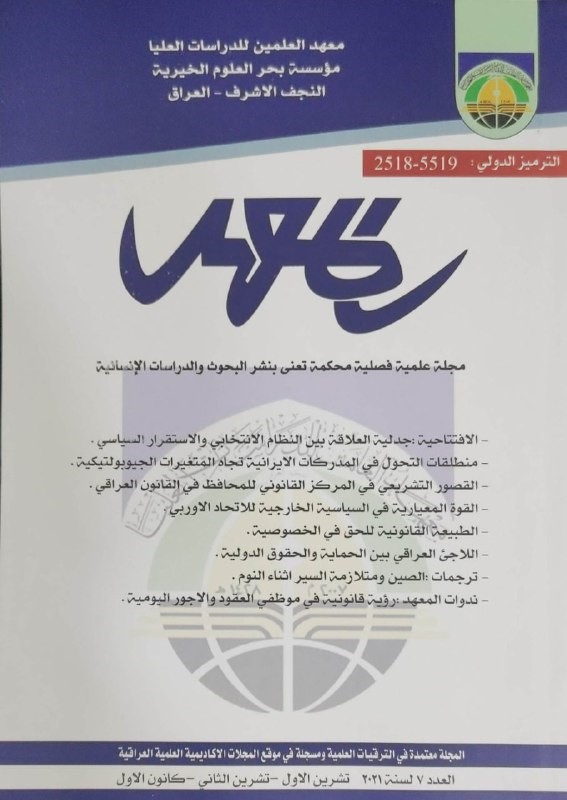سياسات الأمن الوطني في العراق بعد عام ٢٠٠٣
DOI:
https://doi.org/10.61353/ma.0070397Keywords:
السياسات العامة, الامن الوطني, التغييرات الاقتصادية, التغييرات الاجتماعيةAbstract
With the occupation of Iraq in 2003, and the start of the Arab revolutions at the end of 2010, political and academic expectations tended to indicate that the Middle East would enter the midst of a new wave of democracy. Here is the region, which has often been described as exceptional, and the resilience of authoritarian regimes in it in the face of various economic and social changes, beginning its first steps on the road. However, the years following those revolutions revealed many challenges that faced the possibility of this desired democratic transformation. They are security, political and economic challenges, and the security challenge remains the most difficult and most influential, whether due to the transformation of some of those revolutions into civil disputes, in light of regional and international competition, or because of the security vacuum left by the fall, or the shaking of ruling regimes, or the emergence of a new generation of jihadists in a number of countries in the region. All this led to the faltering of the democratization process, and even reversing it .in a reverse direction in some cases The research will attempt to address a problem related to Iraqi national security and the policies followed to ensure a minimum level of it, and it will be divided into three sections. The first section deals with the theoretical aspect of the concept of security and national security. The second side will deal with the challenges facing national security, while the third will deal with Iraqi national .security policies
Downloads
Published
Issue
Section
License

This work is licensed under a Creative Commons Attribution-NonCommercial-NoDerivatives 4.0 International License.







